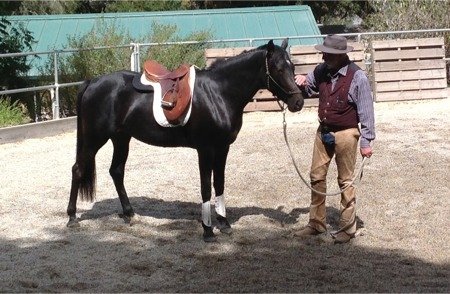This post is a bit of a snooze so I apologise for that. However, the subject came up recently in conversation and it was suggested that it is such an important concept that I should write about it.
___________________________
I hate shopping. I really hate it. I hate grocery shopping, clothes shopping, car shopping, and even horse gear shopping. When I’m in town and Michèle calls me to ask if I can pick some things up at the store my heart sinks and I drag myself to the supermarket. I’m ready to hop in the car and head home, but instead, I head to the mayhem of the supermarket parking lot.
But before I go to the store and buy whatever is on the list something has to happen first. If that something doesn’t happen I go home empty-handed and mad at myself for letting down Michèle. What is it that has to happen first?
Those of you who know my work will have heard a hundred times that everything we do is preceded by an idea to do it. This is no less true of horses than it is of people. However, in reality, it is never just one idea that precedes a task. Mostly it is dozens or even hundreds of ideas involved in getting a task done.
But no matter how many new thoughts are needed to perform a task there is one thing that must happen first before a new idea is adopted. What is it that has to happen first?
For a new idea to be put into action, one has to let go of the old idea first. Every new thought is preceded by letting go of the thought that came before. If an old thought persists it gets in the way of performing any new thought. Resistance to any new idea is determined by two things: (1) how committed a horse is to the old idea, and (2) how clearly it understands the new idea.
Commitment to an old idea and clarity of a new idea are the two main factors that determine resistance to any new task.
If you accept that premise it seems obvious that the purpose of any approach to training is first and foremost to provide an incentive to give up the idea that already occupies a horse's thoughts. Taking on board a new idea is secondary to letting go of an old idea. It doesn’t matter if we use negative or positive reinforcement in our work. The first task of any training is to give a horse a reason to no longer be committed to the old idea.
The commitment to an idea determines how we motivate a horse to let go of that idea. The stronger a horse believes the idea in its head is connected to keeping it alive the stronger the commitment to the old idea. Changing that idea usually requires a strong incentive and often invokes varying degrees of anxiety and stress. This is because asking a horse to give up an idea that it believes is keeping it safe is asking a horse to take a risk on an idea it does not have (the trainer’s idea) to do a better job of keeping it alive. The more a horse believes an idea is linked to survival the harder it is to change. The less importance a horse gives to an idea for its survival the easier it is to change.
Nevertheless, it is important to understand that in the early stages of learning ALL training exploits some degree of anxiety to block the idea a horse holds onto. If a horse instantly thought our idea was a good idea, there would be no trouble. But the idea that occupies a horse’s thoughts is there because a horse believes it is the best available option. So changing it is not something a horse wants to immediately try. This is why when we first apply a training method we are often met with a loud NO from our horse.
In time, as the training forms new patterns and a horse learns confidence in going along with our idea, the anxiety evolves into comfortable emotions and minimum resistance. But at first, motivating a horse to give up an old idea does create troubled emotions in horses.
When I’m in town and Michèle calls me to ask if I would go to the store and buy some cabbage my heart sinks and my first thought is to resist and hold onto my idea of heading home. “I would love to sweetheart, but I need to hurry home for a call I am expecting,” is my made up excuse.
But then Michèle suggests that while I’m picking up the cabbage I could also buy a bottle of my favourite single malt Scotch that she saw was on special. Suddenly Michèle’s idea that I should go to the store does not seem so bad and I feel less troubled by giving up my idea of driving straight home. It’s then that I realise what an excellent trainer she is. But I still hate shopping.
I’m working at interrupting a thought

